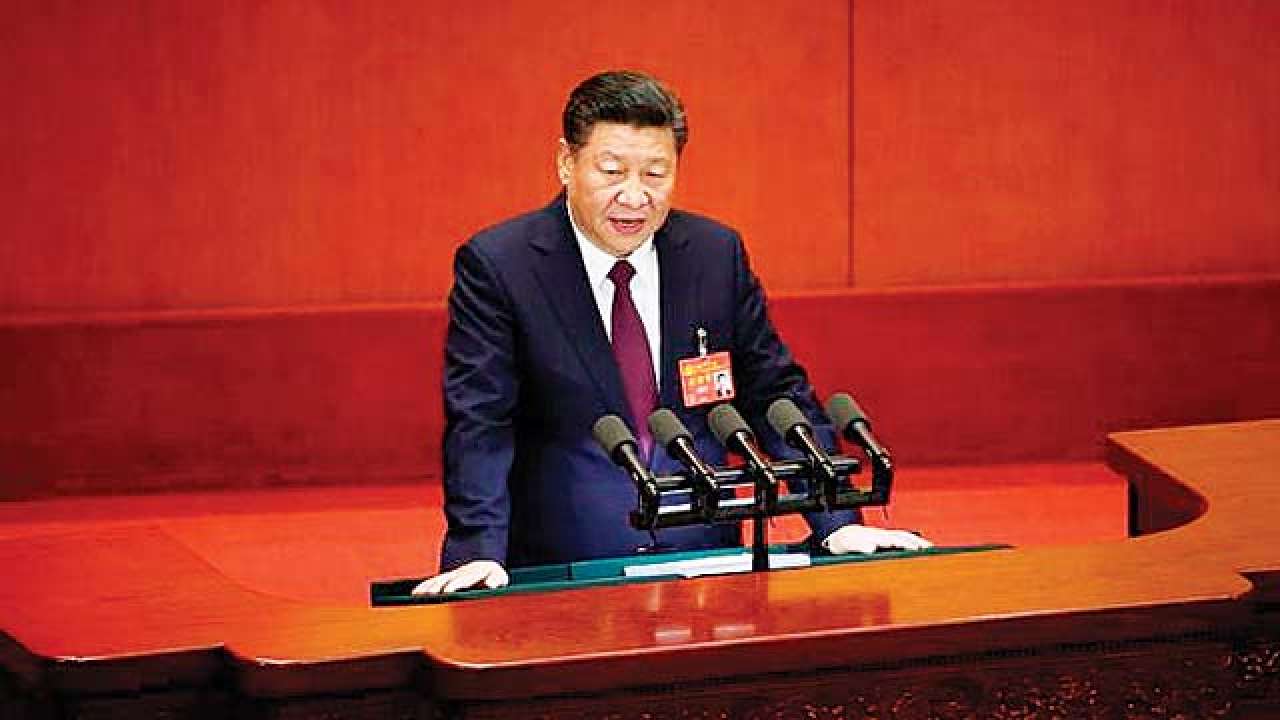
The decision of the Chinese Communist Party to amend its Constitution so as to give its leader Xi Jinping an extended indefinite term as Party General Secretary, and hence as the head of state, marks a huge regression in the evolution of the Chinese polity with high political risks for both China and the world. Indeed, the Party’s decision to suddenly agree to give Xi an indefinite tenure even before he starts his second term in March is extraordinary and indicates deep uncertainties and concerns within the Party about rising social tensions and stability. They also indicate possible deep inner-party differences over policies.
It may be argued that the PRC is as it is a one-party authoritarian state, and the extension of principal leader’s term would have marginal consequences for Chinese domestic and foreign policies. That, however, would be a gross error of assessment. The new collective leadership model devised by the post-Mao reformers led by Deng Xiaoping was a result of their resolve to prevent a return to the terrible repression and the mass victimisations in the repeated class wars unleashed during Mao’s ultra-leftwing rule as a supreme leader with no checks and balances. Mao did not spare even his closest comrades who wanted a more moderate political line. Deng promoted a new collective leadership arrangement wherein the General Secretary was to be one among equals with a fixed two-term tenure and no possibility of nomination for a Party leadership position beyond 68. The decisions were enshrined in the Party Constitution to give it sanctity. The Party under Xi has now decided to reverse those changes and return to the old imperial style power arrangement that had led to the acute concentration of all power in a one-man dictatorship with disastrous consequences.
Ironically, all through Xi’s first term that began in 2012, the Party’s top leaders instead of resisting, in fact did not oppose the systematic accumulation of all decision-making powers in the hands of the General Secretary. No other party general secretary since the reforms began in 1978-79 had been allowed to do so. Collective leadership receded as the leader was allowed to concentrate power. Why would the other leaders support such institutional changes that compromise their political ambitions and even security unless the resistance of the sceptics or opposition had either been broken or the Party was facing an internal crisis? Indeed, any contrary voices within the Party have clearly been subdued by a majority systematically constructed by Xi within the Politburo Standing Committee, the Central Committee and the provincial Party committees in the past five years. This was apparent from the appointments to leadership positions in the 19th Party Congress held last year. Potential rivals were set aside or jailed in Xi’s anti-corruption purges. Meanwhile, triumphalism about making China a great power and a developed, scientifically and militarily advanced state second to none within the foreseeable future and corresponding drummed up nationalism diverted attention of the people and the world from any discussion of possible crisis building within the economy and the polity, especially in the rural sector.
The apparently legal process of amending the constitution by which Xi’s term has been extended puts Xi in the category of leaders who have done so earlier – Putin in Russia and Erdogan in Turkey. But the comparison is not entirely valid since the scale of China and its impact on the world today far outweighs that of Russia or Turkey. Nor does it provide legitimacy since China does not have a political system based on rule of law.
Xi at Davos and elsewhere has tried to present himself as a benevolent leader who wants to keep China open, reform the economy and achieve the mission to make China great again peacefully. So far, however, China’s practice has been quite contrary. His first term witnessed large-scale state-led investments to shore up declining economic growth and the resultant unsustainable internal debt that is now over 280 per cent of its GDP. There are few signs of a serious transition from an investment-led, export-oriented economy to a consumption-led welfare model that would rescue the economy and benefit the people. Instead, his strategic Belt and Road Initiative seeks to overcome the problems of industrial overproduction and declining demand by capturing new external markets and assets by providing large amounts of loans to countries desperate for capital. Despite his anti-corruption drive, there are few signs that Xi is interested in cutting the deep ties between political power and capital achieved by the ruling Party by its tightened control of state firms and banks that dominate the economy. The Party cadres continue to wield vast powers and accumulate wealth while the people’s consumption is kept in check and they continue to bear the brunt of falling growth. To prevent criticism, Xi has jailed thousands of dissidents, lawyers, journalists, human rights and environmental activists, tightened control over media and the Internet, enhanced nationwide surveillance, while building strong ties within the PLA. There are real reasons for the Chinese to be worried. If Xi fails to resolve domestic problems or achieve nationalist goals, there could be turmoil and conflict.
Externally, the Xi period has been marked by heightened tensions with Japan, Southeast Asia, India and the United States over territorial and trade issues, China’s large military build-up and Beijing’s protection of its allies North Korea and Pakistan. There are real fears that China’s creeping territorial occupations and increasingly assertive policies are undermining the existing post-Cold War order that has ensured peace and economic growth in Asia.
There is much to worry about Xi’s indefinite strong-man rule.
The author is a Senior Fellow at Vivekananda International Foundation